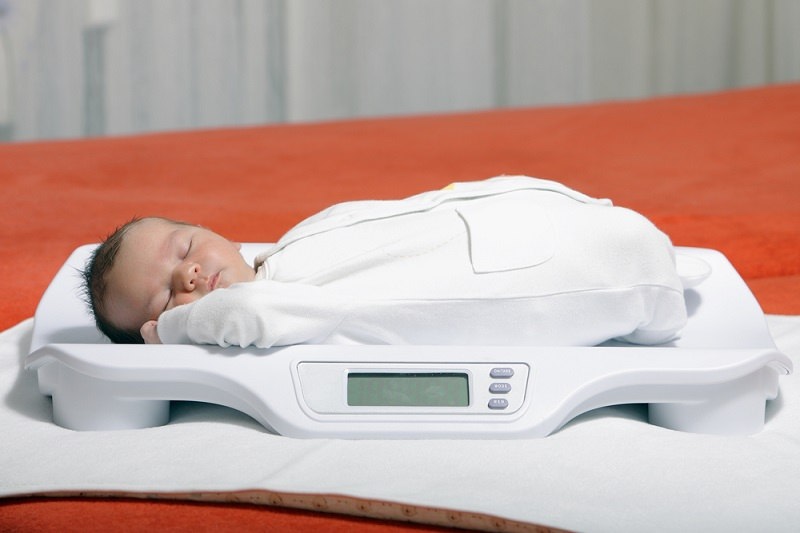It is important to get a pre-pregnancy vaccine if you and your partner are planning to start a pregnancy program. This needs to be done because a healthy and smooth pregnancy is not only influenced by the consumption of nutritious food, but also vaccinations.
During pregnancy, the immune system of pregnant women will naturally decrease. This makes pregnant women more susceptible to infections and certain diseases that can harm their health and that of the fetus.

Fortunately, now available several vaccines that can protect pregnant women and fetuses from various infections. If you are currently planning to start a pregnancy program, let's identify what types of vaccines are important for you to get before getting pregnant.
List of Vaccines Before Pregnancy That Needs to Be Obtained
All pregnant women are recommended to get the following vaccines before pregnancy:
1. MMR Vaccine
The MMR vaccine is useful for protecting prospective pregnant women and fetuses from measles, mumps, and rubella. If you get rubella while pregnant, the disease can cause miscarriage or birth defects in the fetus.
Mumps is also important to prevent because this disease can cause problems in the fetus, such as hearing loss or deafness, meningitis, swelling of the brain, respiratory problems, and miscarriage.
Meanwhile, measles can cause lung infection (pneumonia), brain damage, and even death. After getting the MMR vaccine, you are advised to wait at least 4 weeks before starting the program to get pregnant.
2. Influenza Vaccine
Before getting pregnant, you are also advised to get the influenza vaccine to protect you and your baby from getting flu easily. However, if you are already pregnant, you can get an influenza vaccine that is made from a killed flu virus, not a live attenuated flu virus.
3. Varicella (chickenpox) vaccine
You will need to get the varicella vaccine before you get pregnant if you have never had the varicella vaccine or have had chickenpox before. Chickenpox is a highly contagious disease. If a pregnant woman catches chickenpox early in pregnancy, the fetus will be at high risk for congenital birth defects.
Meanwhile, if a pregnant woman catches chickenpox before delivery or in the last trimester of pregnancy, this disease is at risk of causing severe chickenpox infection in the baby after he is born.
Just like the MMR vaccine, you are also advised to wait about 4 weeks before trying to get pregnant after getting the chickenpox vaccine.
4. Human papillomavirus (HPV) vaccine
This pre-pregnancy vaccine can prevent HPV infection and other HPV-related diseases, such as cervical cancer. The HPV vaccine is recommended for those of you who are 26 years old or under 26 years old but have had sex.
To date, no association has been found between HPV and miscarriage, premature birth, or other complications of pregnancy. However, HPV infection can be passed from mother to newborn during delivery, although this is rare.
Newborns infected with HPV are at risk of developing a benign tumor in the larynx called laryngeal papillomatosis. While in pregnant women, HPV infection can cause genital warts and cervical cancer.
HPV infection in the birth canal also carries the risk of making delivery more difficult, so doctors may need to perform a caesarean section to help deliver the baby.
5. Pneumococcal vaccine
You are advised to get the pneumococcal or PCV vaccine before getting pregnant to prevent diseases caused by pneumococcal bacterial infections, such as pneumonia, meningitis, and bacteremia.
You also need to get this vaccine before getting pregnant if you previously smoked a lot or suffered from certain diseases such as diabetes, heart and lung disease, or chronic kidney failure.
6. Hepatitis B vaccine
Getting a full hepatitis B vaccine before or during pregnancy can protect you and your baby from hepatitis B disease during pregnancy.
If you have hepatitis B while pregnant, the disease can be passed on to the fetus. As a result, the fetus can experience serious health problems, such as liver damage or miscarriage. The fetus is also at risk of being born with hepatitis B disease.
7. TDaP Vaccine
The TDaP vaccine can protect you and your baby from tetanus, diphtheria, and whooping cough (pertussis). This vaccine can be given before pregnancy or after 20 weeks of pregnancy.
If you are planning to get pregnant, don't forget to get various vaccines before getting pregnant above. To determine what types of vaccines you need to get before getting pregnant along with the dosage and schedule for administration, you can consult with your obstetrician.









